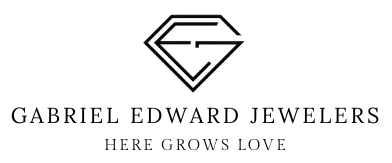The clock is ticking.
Holiday season’s coming up. Or maybe her birthday. Maybe you just remembered your anniversary’s next week. Her dad’s really starting to like you, he let you man the grill at the BBQ last Sunday. You did not come this far to just come this far. You are getting invited on her family trip to Spain, come hell or high water.
Diamond studs are a perfect gift for whatever occasion you almost forgot. Here we’ve got two beautiful pairs of 14kt White Gold studs.
One pair’s 3.07 carats, one pair’s 3.01 carats.
Big difference: one pair’s lab-grown, one’s natural.
Bigger difference: one pair’s $13,000, the other pair’s $3,600.
No difference: you can’t tell which one’s lab and which one’s natural. Read on for proof.
Lab versus Natural Diamonds, impossible to tell apart.
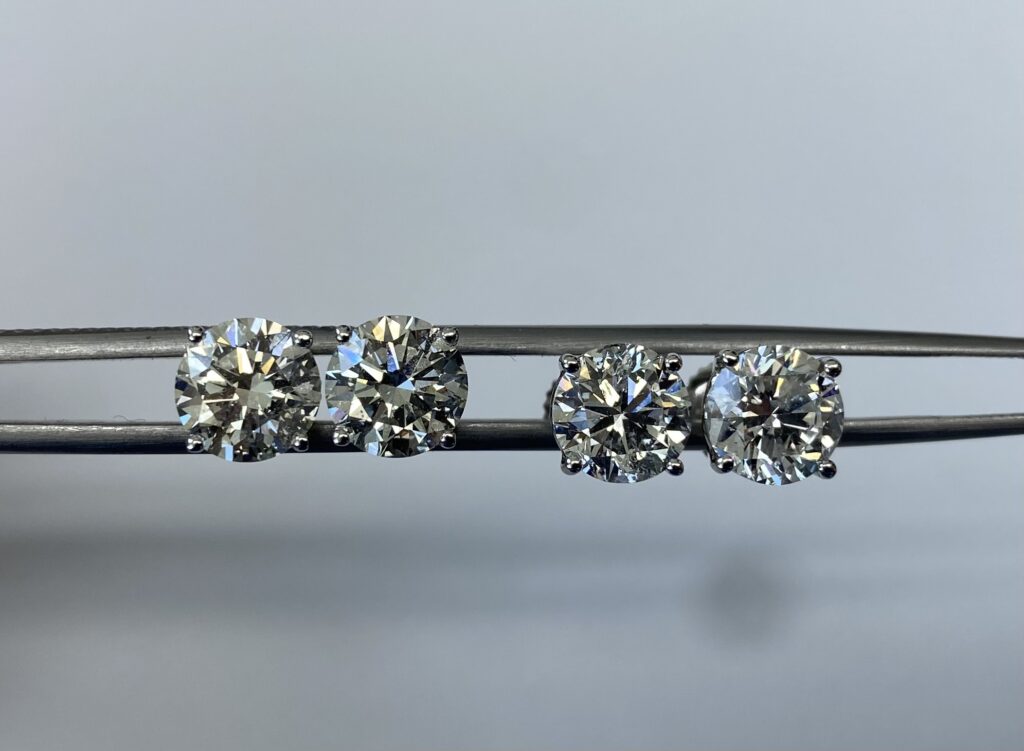
First up, as always, a side-by-side photo with no filters. 3.01 carat pair on the left and 3.07 carat pair on the right. Both pairs look “whiter” color in person, but retouching would ruin the authenticity of our comparison.
What did you learn from this photo? A couple things I’m seeing:
- These are two huge pairs of studs. 1.00 – 1.50 carats total is an average pair.
2 carats is a big pair. These studs are so big, when they look down they can’t see their toes. - Most people want studs that are (a) really big and (b) not noticeably yellow or brown. The pair on the right is a bit whiter, but color grade’s much less important on a pair of studs versus on an engagement ring. While it’s socially acceptable to grab someone’s hand and check out their ring it is not cool to mouth-breathe into people’s ears while looking at their studs.
- The pair on the right has many more clarity imperfections (left-hand diamond’s top) but they appear to be white, which is the least intrusive kind. From a normal viewing distance, white imperfections are very hard to pick out as they blend in with the rest of the diamond’s surface.
Cut Grade and Light Performance: Which Sparkles Better?
Using ASET and Ideal Scopes, let’s see which pair sparkles brightest.
3.01 carat pair
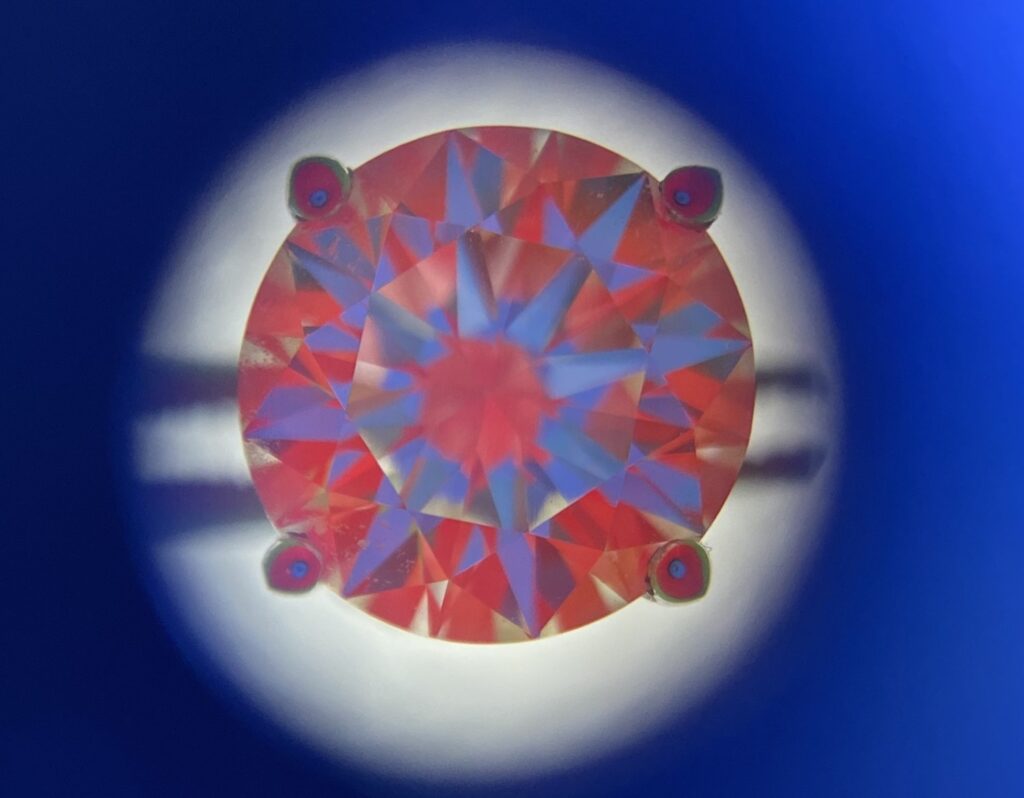
Under ASET scope, we see that these diamonds woke up and chose brightness. Tons of red (heavy light return), negligible green (lesser light return) and well placed contrast (shown in blue).
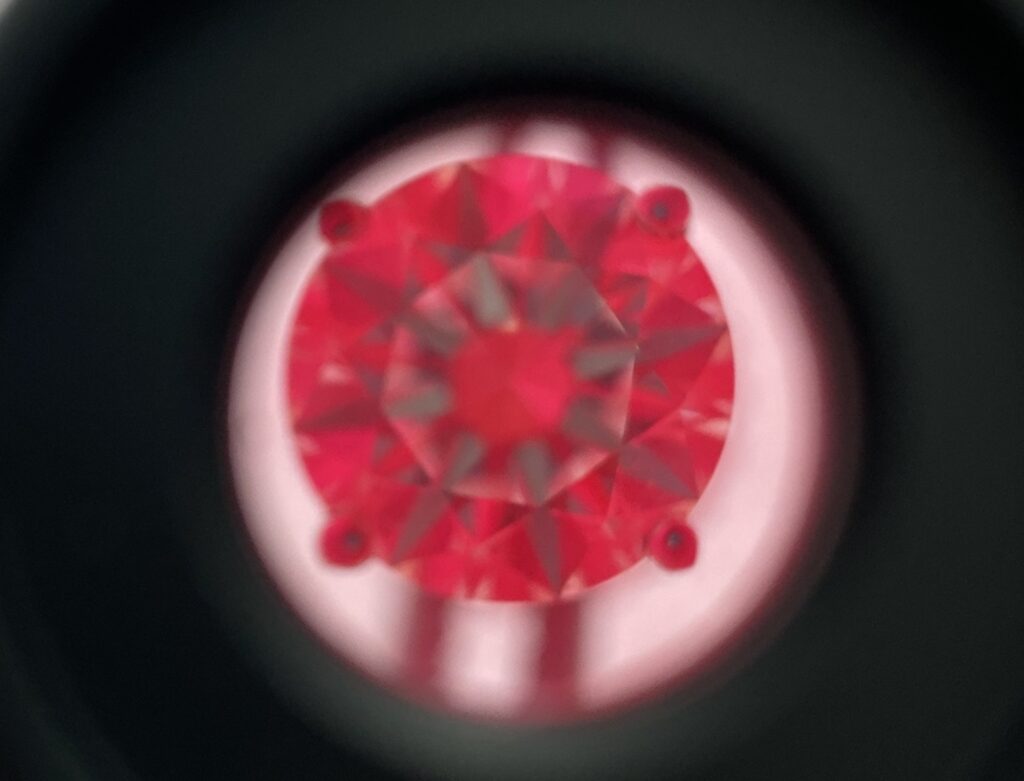
Under Ideal Scope, we see thin, even arrows and symmetrical facets. These are brilliantly-cut stones.
3.07 carat pair
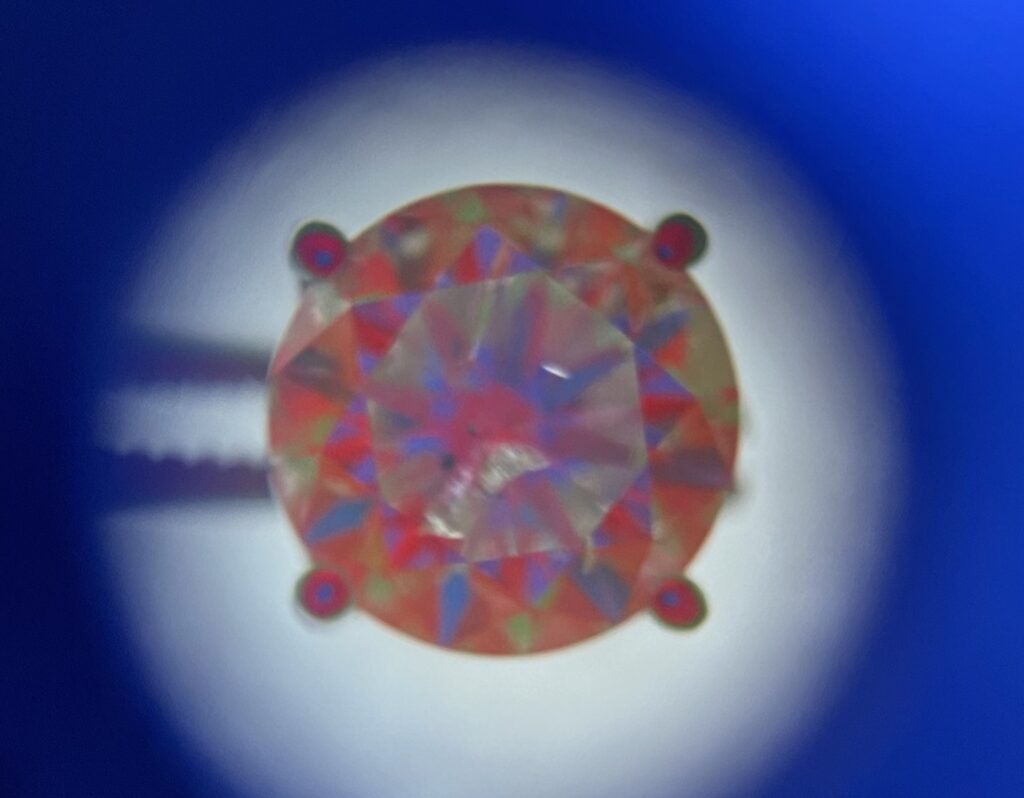
These diamonds, although a gorgeous color and excellent size, are lacking in the cut department. Lots of non-colored / clear areas on the ASET, signifying light leakage.
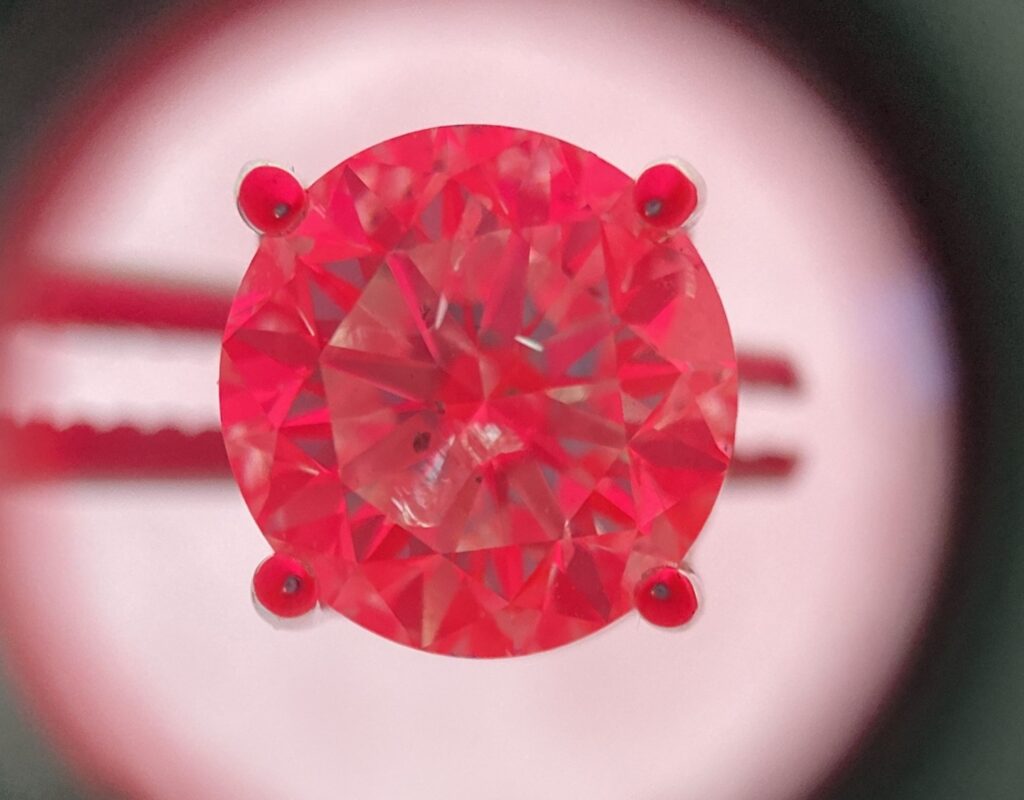
Inconsistent arrows and symmetry are easily spotted under Ideal Scope.
But, same as with Color Grade, I’m not overly concerned about Cut Grade when it comes to studs. What observers (including the wearer, when looking in a mirror) are going to notice most is size!
Clarity: Who’s Cleaner?
3.01 carat pair
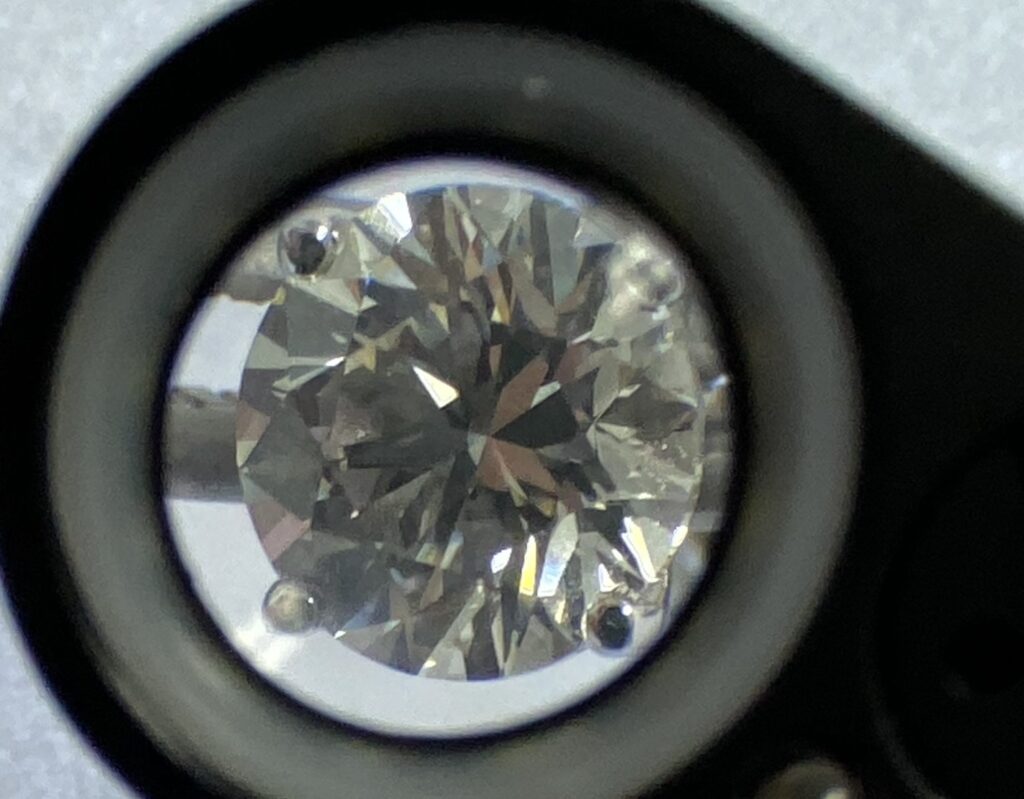
Both from 6″ away naked eye and under 10X magnification, this pair is cleaner than a choir boy after a bubble bath. Barely any imperfections, beautiful diamonds. Both diamonds in this pair were graded “VVS2” Clarity by the IGI.
3.07 carat pair
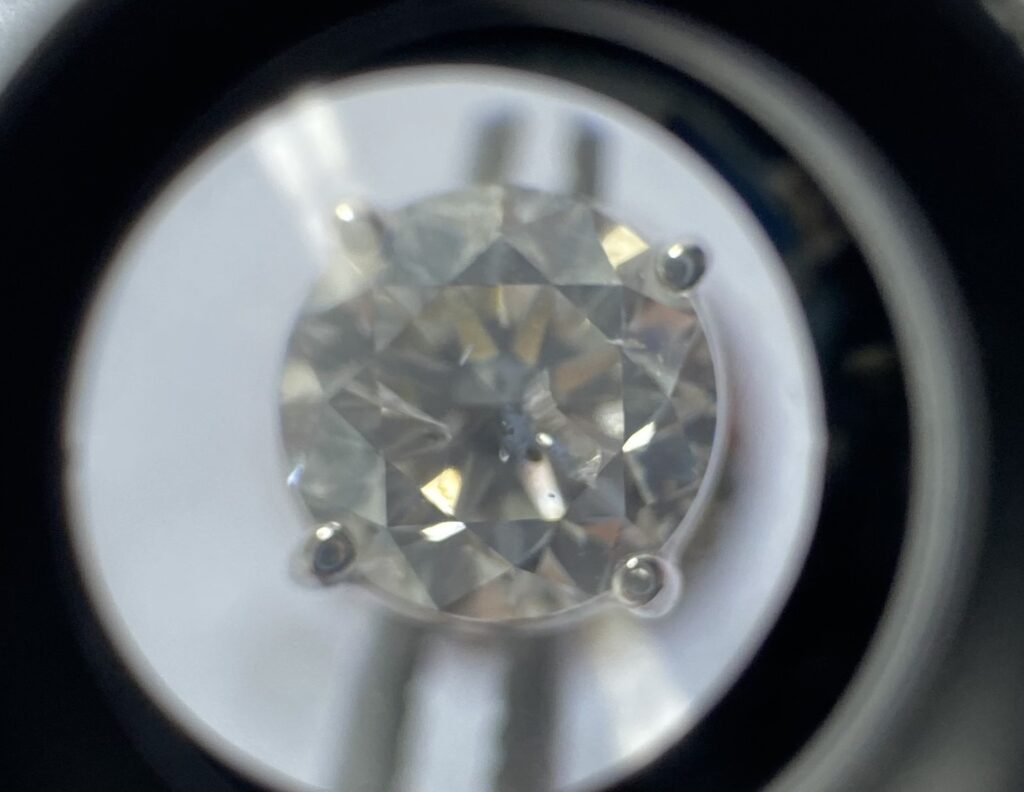
No one’s going to get a good enough look to see all these imperfections except the wearer and their immediate family. So unless your brother/sister/mother-in-law is a huge turd and you want a flawless pair of earrings to throw in their face, don’t worry so much about imperfections.
This pair has not been graded by a 3rd party lab, but they’re borderline eye-clean from 6″ away naked eye and a clear “SI2” or “I1” under 10X magnification.
Live look at Color when worn…
3.01 carat pair
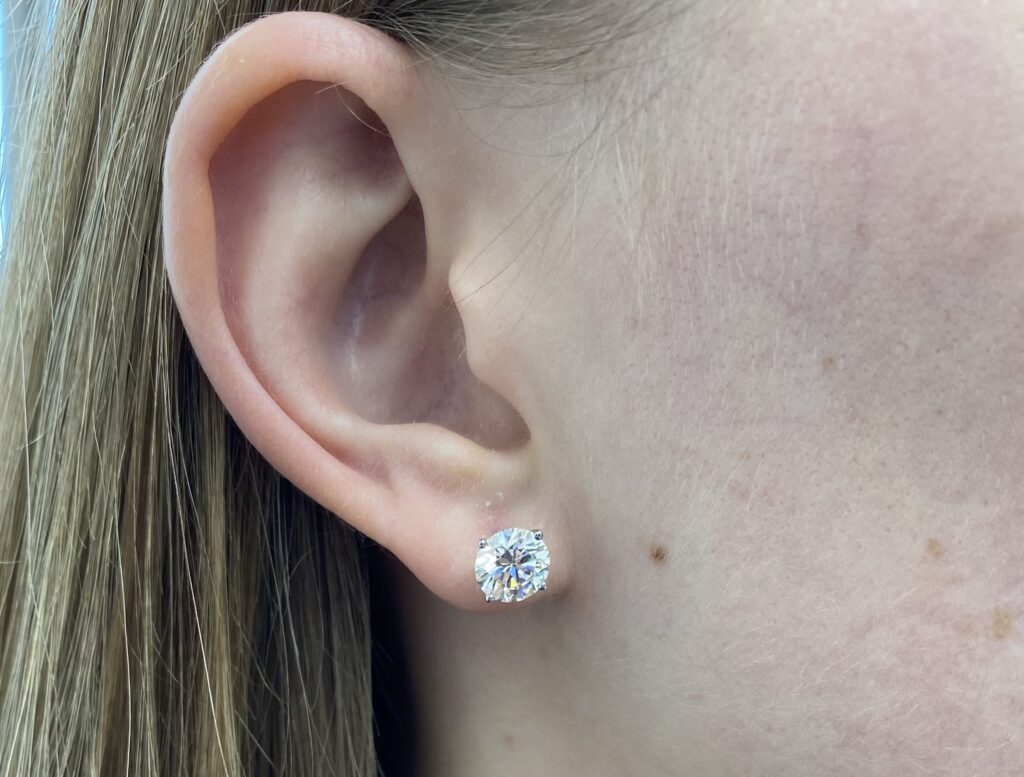
Both diamonds in this pair are graded “I” Color by the IGI. When put side-by-side against a whiter pair, you can definitely see the hints of coloration. Standalone however, this is an impressive “Near Colorless” pair of diamonds.
3.07 carat pair
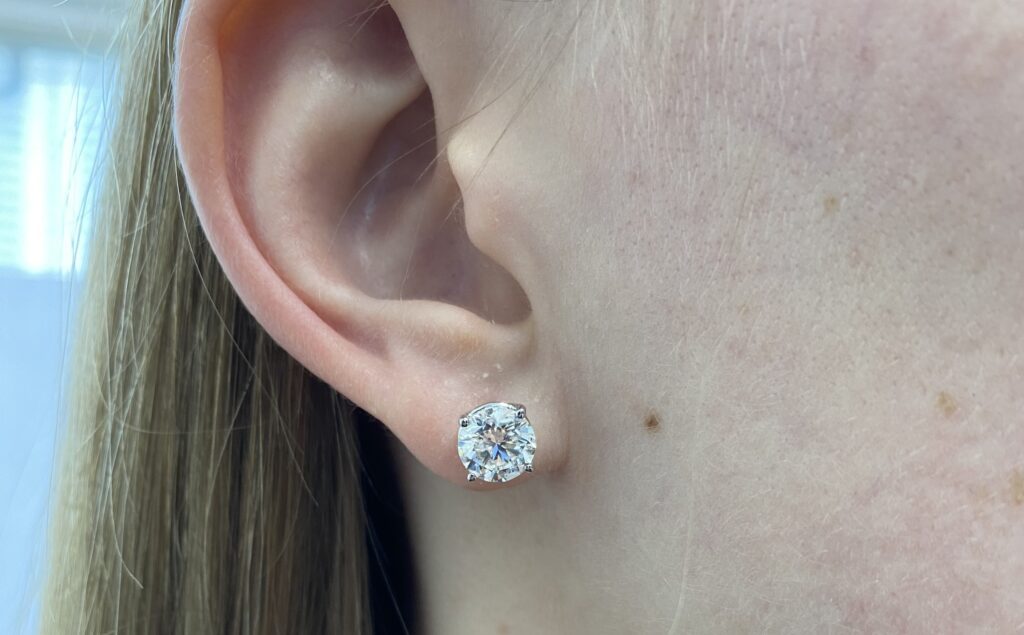
Again, no grading report on these yet, but they’re both definite “G” colors. Albeit slightly, definitely whiter than the 3.01 carat pair.
Which are Lab Diamonds and which are Natural Diamonds?
3.01 carat pair
You knew it all along, didn’t you? This beautiful pair of diamonds was grown in a lab and goes for $3,600. Price includes 14kt White Gold earrings and a “Welcome to the family, son” from her dad ????
3.07 carat pair
And these little piggies were grown in the earth. Icy color, excellent size and a $13,000 price tag. Price includes same as the 3.01 pair and a potential “I’ll pay for the wedding, son” after he hears how much they cost ????
In conclusion!
I’m a big fan of lab diamonds, but by no means am I writing off naturals. With all the information at your disposal you’re armed to pick either type with confidence.
